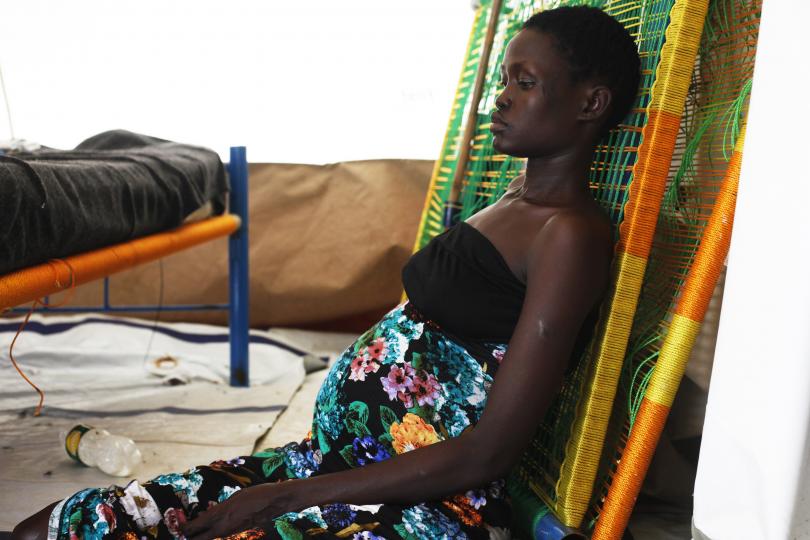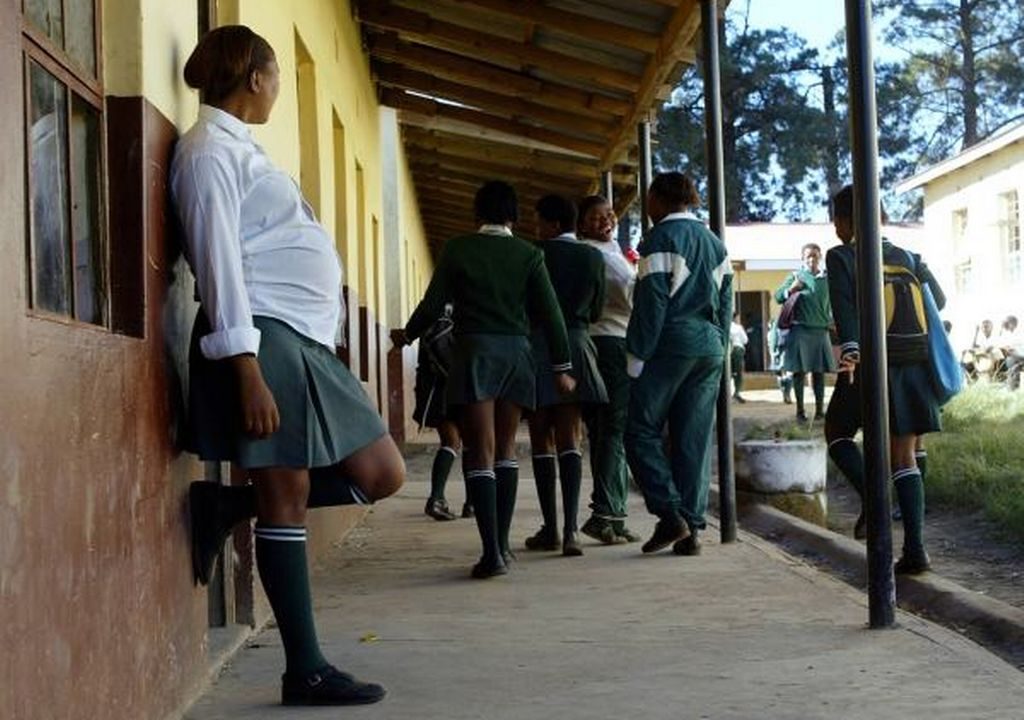“[My school] supported me. For example, when I was breastfeeding, they would give me time off. I would go to school and then run back home [during lunch break] to feed my son, and then come back to the school to study.”
“Angela” is back in school in Kenya, pursuing her goal of becoming a nurse, after having had a baby at age 17. But not all girls have the same chance. Across Africa, tens of thousands of pregnant girls and adolescent mothers are banned or discouraged from going to school. The continent has the highest adolescent pregnancy rates in the world, according to the United Nations. Every year, thousands of girls become pregnant at the time when they should be learning history, algebra, and life skills.
Although all African Union (AU) countries have made human rights commitments to protect pregnant girls and adolescent mothers’ right to education, in practice adolescent mothers are treated very differently depending on which country they live in.
In recent years, many African governments have made strong commitments to ensure that pregnant girls and mothers can attend school. However, Equatorial Guinea, Sierra Leone, and Tanzania still ban pregnant girls or adolescent mothers from government schools.
A growing number of AU governments have adopted laws and policies that protect adolescent girls’ right to stay in school during pregnancy and motherhood. There are good policies and practices to point to, and indeed, far more countries protect young mothers’ right to education in national law or policy than discriminate against them. These countries can encourage countries that lack adequate policies, and particularly persuade the minority of countries that have adopted or encouraged punitive and discriminatory measures against adolescent mothers to adopt human rights compliant policies.
Kenya is among the group of 26 African countries that have adopted “continuation” or “re-entry” policies, and strategies, to ensure that pregnant girls can resume their education after giving birth. Although the trend of more governments opting to keep adolescent mothers in school is strong, implementation of their laws and policies frequently falls short, and monitoring of adolescent mothers’ re-entry to education remains weak overall.

Many other factors contribute to thousands of adolescent mothers not continuing formal education. High among them is the lack of awareness about re-entry policies among communities, girls, teachers, and school officials that girls can and should go back to school. Girls are most often deeply affected by financial barriers, the lack of support, and high stigma in communities and schools alike.
Leaving pregnant girls and adolescent mothers behind is harmful to the continent’s development. Leaving no one behind means that African governments should recommit to their inclusive development goals and human rights obligations toward all children, and ensure they adopt human rights compliant policies at the national and local levels to protect pregnant and adolescent mothers’ right to education. Early and unintended pregnancies jeopardize educational attainment for thousands of girls. For this reason, governments need to prevent them by ensuring their educational institutions provide knowledge, information, and skills, so that pregnant girls and adolescent mothers can enjoy their right to continue their education.
26 African Union countries have laws, policies or strategies in place to guarantee girls’ right to go back to school after pregnancy.
3 countries expel pregnant girls from school, and deny adolescent mothers the right to study in public schools.
18 countries lack clear policies.
Students take a break on the school grounds in Migori county, western Kenya. School authorities there have offered support to pregnant girls and adolescent mothers to help them stay in school and continue their education.
“Brenda,” 18 years old, has a two-year-old son. She was reluctant to stay in school when she was pregnant because she faced ostracism from her fellow students, with no intervention from her teachers. She hopes one day to become a doctor.
“I didn’t go back to school, because I didn’t have anyone to give me advice. I wish someone would’ve come to talk to me about school and encourage me.”
“Harriet,” 17, from Migori county, western Kenya, dropped out of the first year of lower secondary school when she got pregnant. She received no information or advice about policies that allowed her to continue going to school while she was pregnant. She wants to continue studying so she can find a job and care for her child.
“I decided that however high I could reach, I would reach. Those who study are able to determine their own lives.”
“Angela,” 20, walks with her son and her mother near her home after returning from school in Migori county, western Kenya. She is a Form 4 student at a girls-only school. Angela became pregnant when her trainee teacher offered to pay some of her primary school fees in return for sex. Her father tried to marry her off to suitors after she gave birth, but Angela’s mother fought against this and supported her return to school. She wants to go to college and study nursing.
“My mother told me that there was no more money to pay for my school fees, so I would have to stay home.”
“Mary,” 17 years old, holds her three-year-old son in her family’s home.. She did not know how to prevent pregnancy. She no longer goes to school. Her parents told her they didn’t see the point of educating her now that she was a mother.
“Mary” is determined to provide an education for her son. She hopes to become a hairdresser and earn a living for herself and her son.
“I decided that no matter what, I would return to school. I took the 3000 shillings I had and wore the shoes my friend gave me. I went to the school and explained my situation to the principal. He told me I could stay and study, and pay the fees whenever I could.”
After returning from school, “Evelina,” 17, picks up her daughter “Hope.” Evelina is a Form 2 student at a girls-only school in Migori county, western Kenya. the school supports her by finding donors to contribute to her tuition fees, which she cannot always afford.

